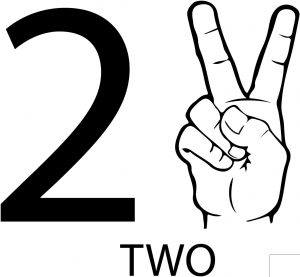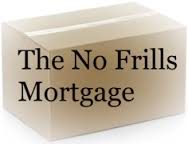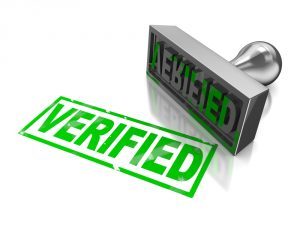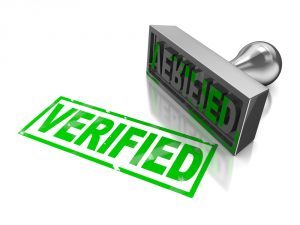Since 2012, it’s become the wild west of mortgage options out there for those folks who are living the Canadian dream of being Self Employed (also known as BFS, Business for Self).
In 2012, the Office of the Superintendent of Financial Institutions introduced Guideline B-20, which required federally regulated banks to tighten the rules for approving mortgages. Without boring you with what that mortgage jargon translates to you, the bottom line means you “generally” have to qualify now from your Line 150 of your tax return. That’s NET income, not GROSS income.
Don’t freak out yet! There is good new below…
As BFS folks, one of the perks of being self-employed is we don’t pay as much in taxes as we have business write offs we can use to lower our GROSS income. We are now being penalized with many lenders with higher rates and fees with these new rules.
I wish there was a simple book with straight up rules for the BFS mortgages, but there really isn’t.
Why?
• It depends on your credit
• It depends on where your income is coming from and how long. Is it commissioned, contract, invoiced, under the table or under your mattress?
• It depends on your down payment.
• It depends on so many factors…hence you really need a mortgage consultant who really understands BFS mortgage programs.
There are a few programs you may fit under: Stated Income, BFS Conventional, or Alternative or Private lender. All of them are slightly different, but you will fit somewhere with someone.
Not to pick favourites, but here are a few lenders and their programs (through your Dominion Lending Centres mortgage professional):
• B2B Bank has a fantastic BFS Expanded Program (actually nine in total) that allows 12 months of bank statements showing income vs those Notice of Assessments. They also don’t charge any mortgage premiums or fees!
• Street Capital has an insured Stated Income to 90% (i.e. 10% down payment) program. You have to be two years in business filed, 5% of your down payment has to come from your own savings, and no “commissioned sales” folks here.
Common Questions I get:
Q: I was working with a company as a computer systems analyst for the past three years. Now I am self employed as a computer systems analyst. Can I still qualify for a mortgage with less than two years as filed self employed?
A: Yes, as long as you are in the same job role, you should have no issues.
Q: I heard you need 20% down to qualify for Self Employed Mortgage.
A: There are a few lenders that allow for 10% down now.
Q: I am a waitress and make most of my money in tips. How can I use this to qualify for a mortgage.
A: If you’re not declaring your tips on your taxes, then some lenders will look at 6 months deposits into your account.
Q: Can I refinance to pay off my Canada Revenue debt I owe:
A: Yes, very common practice.
 Self Employed mortgage tips:
Self Employed mortgage tips:
1. Keep your business money deposited in one account. Separate your expenses and your income accounts.
2. Leases or Loans on vehicles for business should come out of your BUSINESS account.
3. If your company is paying you a “stipend” or “allowance” for you vehicle, make sure it’s taxable income. You will need two years to use this as income.
4. Make sure your invoices match your deposits.
5. When depositing “other monies” i.e.: tips, tag it on your deposit slip so it shows up online with your deposit.
6. Keep important documents such as articles of incorporation, GST/HST registration or business licence in one folder with all your tax returns. Keep records for three years from the date you filed your original return or two years from the date you paid the tax, whichever is later, if you file a claim for credit or refund after you file your return. Keep records for seven years if you file a claim for a loss from worthless securities or bad debt deduction. Be organized.
7. If you’re not filing business financials, file T2’s if you are incorporated. Filing business financials may be more expensive, but worth it for mortgage qualifying with more lenders.
8. If you pay yourself dividend income, you will need two years of this form of income.
If you’re in business for yourself, congratulations! Keep up the good work. There are many moving parts to planning and qualifying for a self-employed mortgage, so if you’re just starting to look at the idea of a mortgage – plan NOW!
I too am self-employed and work with many professionals such as lawyers, doctors, pharmacists, management consultants and self-employed folks such as truck drivers and waitresses. You’re all important and have different incomes we can use to make your dream come true.



 You’ve been offered an amazing rate and you just can’t believe how much you will save. You’re super excited and getting ready to go sign off on the papers when you randomly run into a mortgage broker and mention the deal you scored. The broker says to you that’s an awesome rate, any idea what the penalty calculation is if you need to refinance in the future?. Wait what…isn’t it the same as the last mortgage I had?
You’ve been offered an amazing rate and you just can’t believe how much you will save. You’re super excited and getting ready to go sign off on the papers when you randomly run into a mortgage broker and mention the deal you scored. The broker says to you that’s an awesome rate, any idea what the penalty calculation is if you need to refinance in the future?. Wait what…isn’t it the same as the last mortgage I had?


 Life can definitely throw some challenging financial situations your way. As mortgage professionals, we can provide solutions and strategies during or after these challenging times in order to get you back on track. We have access to banks, trust companies and mortgage companies that specialize in this transitional period to help you move forward with the best mortgage plan for you. We protect your credit by negotiating with multiple lenders to find a solution for you.
Life can definitely throw some challenging financial situations your way. As mortgage professionals, we can provide solutions and strategies during or after these challenging times in order to get you back on track. We have access to banks, trust companies and mortgage companies that specialize in this transitional period to help you move forward with the best mortgage plan for you. We protect your credit by negotiating with multiple lenders to find a solution for you. Buying a home is financial decision, but also an emotional experience.
Buying a home is financial decision, but also an emotional experience.